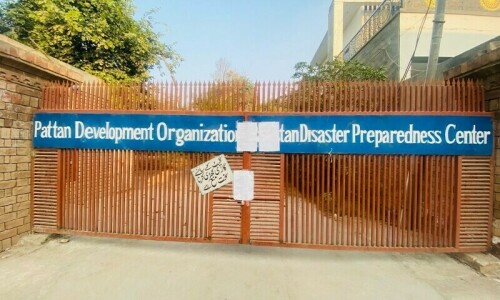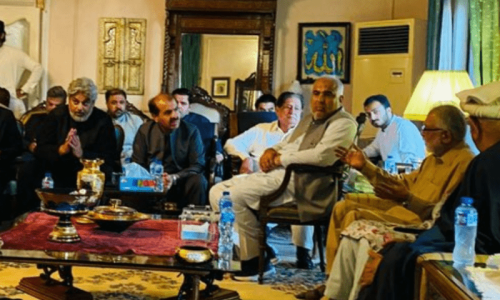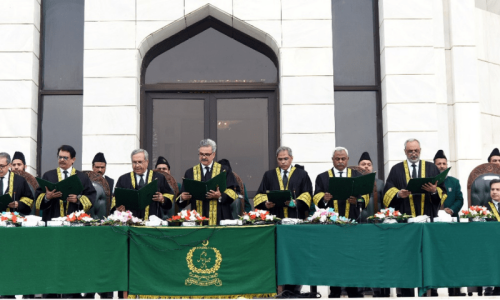
ISLAMABAD: The army on Thursday announced the ending of military offensive in Kurram Agency after clearing only Central Kurram of militants, but leaving the opening of a crucial road link to an accord between the warring tribes.
The official announcement of the conclusion of the operation code-named Koh-i-Sufaid came with the visit of Army Chief Gen Ashfaq Parvez Kayani to the region.
“Clearance of Central Kurram will ensure opening of Tal-Parachinar Road,” a statement issued by ISPR said without assigning reasons why an offensive in Lower Kurram was avoided and the operation was wound up before the only road link between the remote parts of the agency and the other parts of the country could be cleared.
Opening of Tal-Parachinar Road was one of the major objectives for starting the operation.
ISPR officials explained the operation was targeted against terrorists and miscreants involved in suicide bombings, kidnapping for ransom and extortion.
Sources, however, say that military stayed clear of the sectarian strife in the region that has claimed hundreds of lives and focused only on clearing Central Kurram of terrorists, who had fled operations in other tribal areas, by dislodging them from their well entrenched hideouts in the mountains; and disconnecting a route from North Waziristan to Tirah valley through Mamozai.
Another reason why military is believed to have kept itself out of Lower Kurram and conducted a limited level operation in the central region was possibly the defection of Fazal Saeed Haqqani from the ranks of Hakeemullah, days ahead of the operation.
Fazal’s militia, according to sources in Kurram, remained untouched because of his last-minute move, citing differences with the TTP leadership.
Tribal elders from Upper Kurram at a jirga held with political administration earlier this week questioned the logic for restricting the military offensive to Central Kurram, while leaving intact the terror infrastructure in the lower region, which had engineered a humanitarian crisis in Upper Kurram by keeping Tal-Parachinar road blocked for almost four years and killing Shias.
A senior military official, speaking about the operation, said the Kurram problem had sectarian dimensions and “Lower Kurram was not in control of terrorists”.
The army also believes that its operation in Central Kurram would create the right condition for the implementation of the Murree Peace Accord signed by the warring tribes in 2008.
Another jirga of the tribes is expected in the first week of September for renewing the Murree Peace Accord.
The officer said if the tribes reached some sort of settlement they are expected to provide guarantees for traffic to freely ply on the Tal-Parachinar road.
For now only controlled traffic under FC protection would be allowed.
Kurram operation involved some 5,000 troops. Some 130 militants were killed, while a large number of others, including their leadership, is thought to have fled to other areas. About 13,000 families were displaced during the operation.
The manner in which the operation was conducted has reinforced a perception that the major objective of the offensive was to block the northern route to North Waziristan. The army has been resisting international pressure for an operation in North Waziristan.
Defence analysts say an operation in North Waziristan without securing Central Kurram would have allowed militants there to shift to the Kurram and Orakzai agencies.
Therefore, they say, the Kurram operation could be a prelude to a military campaign in North Waziristan.
Our Parachinar correspondent adds: Six militants were killed and nine soldiers were injured in an exchange of fire and a bomb blast in central Kurram Agency on Thursday, the day the army declared successful completion of an operation in the region.
Officials said that a clash in the Gawaki area left six militants dead and two soldiers injured. The claim, however, could not be verified from independent sources.
In the Manato area, seven soldiers were injured when their vehicle hit an improvised explosive device.













































